COVID-19 Survey II (2021): Impacts on Scientific Research
The survey sample was weighted by gender and academic field to represent the population as closely as possible. The measure of sampling error for questions answered by the full sample is plus or minus 5 percentage points.
In this second round survey on COVID-19, we asked scientists about the ways in which their professional and personal lives have been impacted over the past year. We also asked their opinions on policy issues related to the pandemic. You can see results from last year’s survey here.
Question
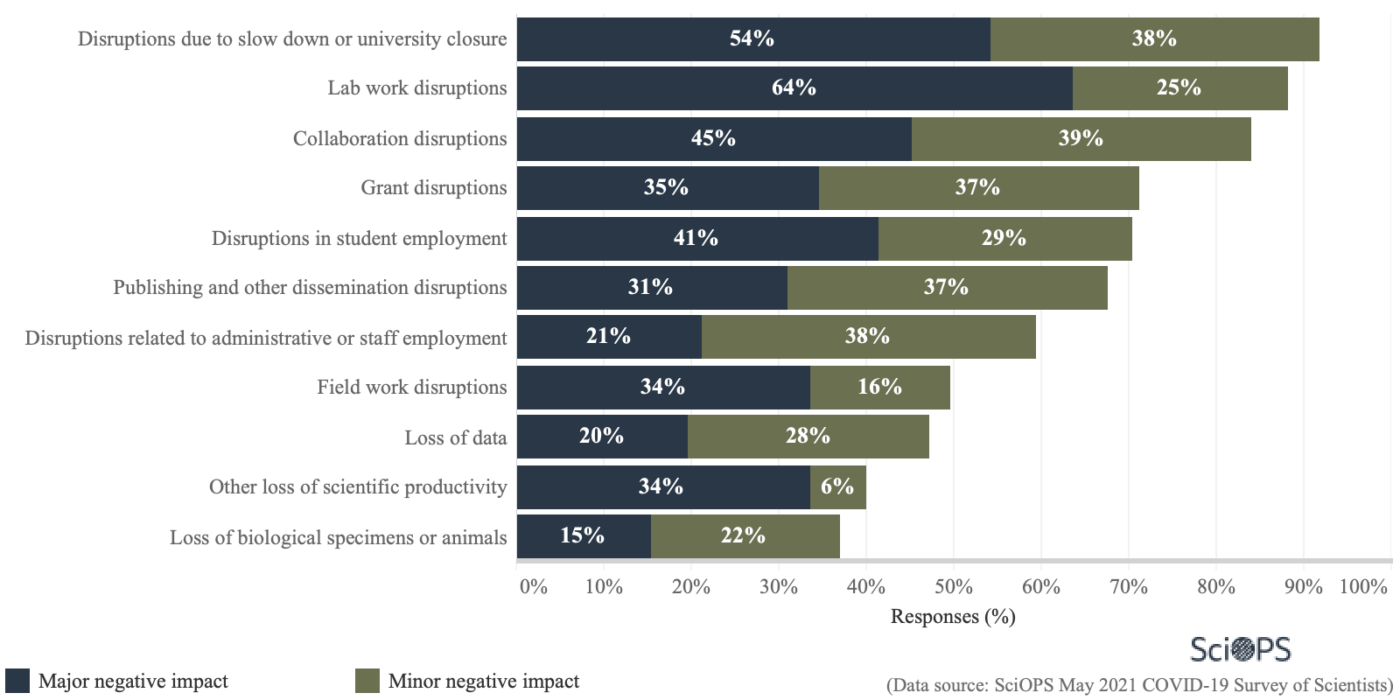
Finding
A large majority of scientists report that as a result of COVID-19 policies, they experienced substantial negative impacts on their research, with the most disruptive being university shutdowns (92%), lab work disruptions (89%), and collaboration disruptions (84%).
Question
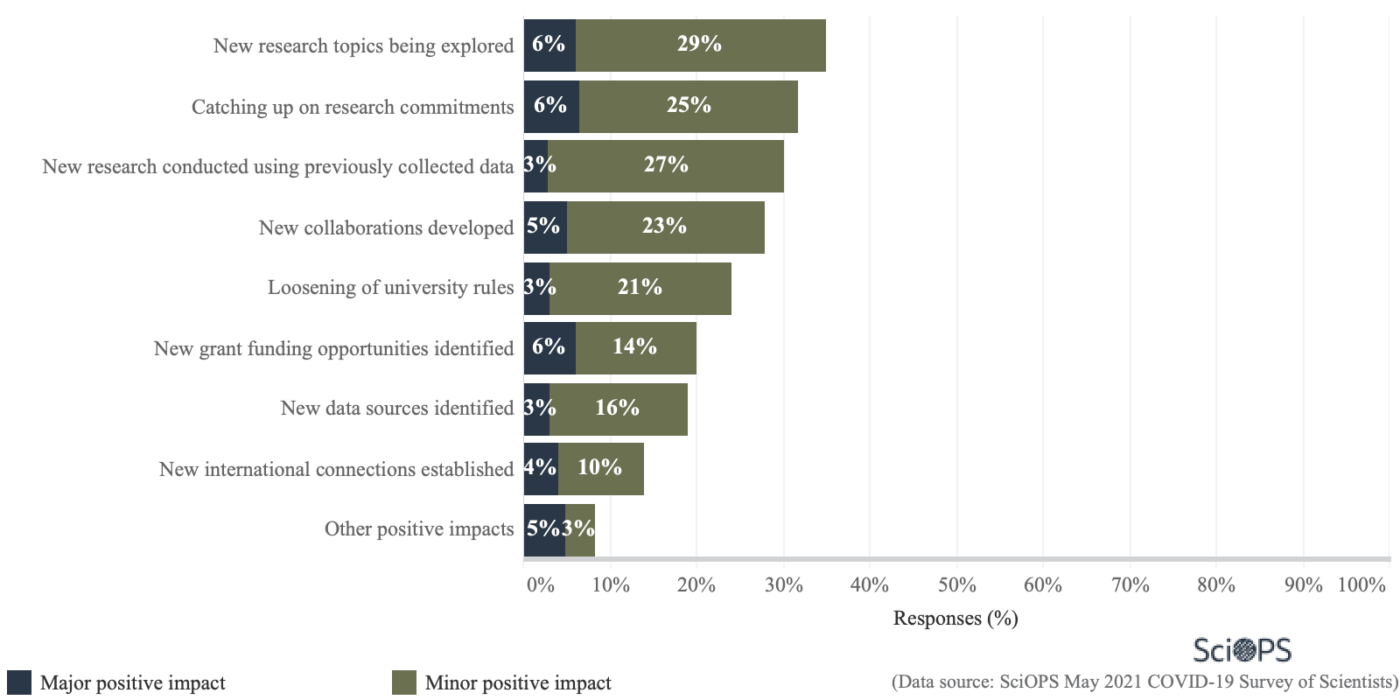
Finding
The most frequently reported positive impacts on research from social distancing policies are the investigation of new research topics (35%), the return to prior research commitment (31%), and the use of previously collected data for new research (30%). Respondents selecting ‘other important impacts’ (8%) identified positive impacts such as having more time on writing, increased flexibility in time management, and increased access to seminars and conferences.
Question
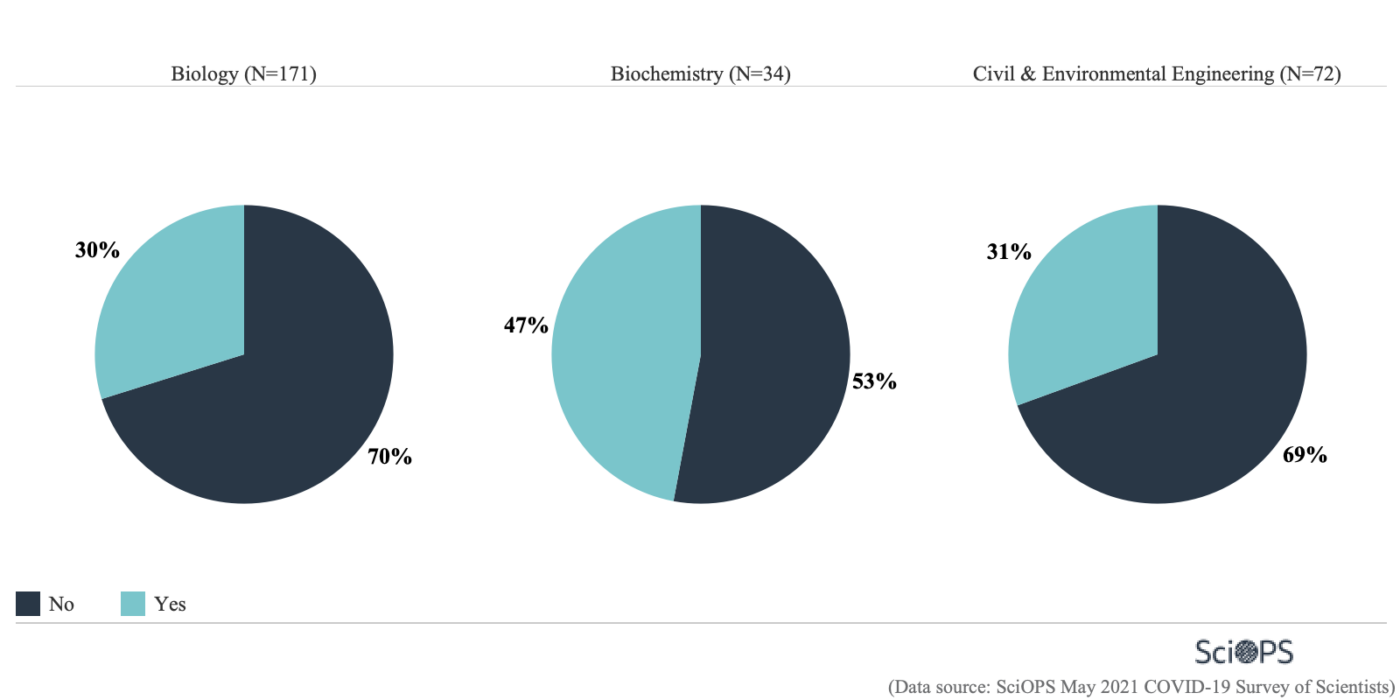
Finding
The majority of respondents (68%) report not facing financial problems with their grants caused by the pandemic. About 30% of biologists, 47% of biochemists, and 31% of engineers reported that they have at have at least one research grant facing financial problems.
Question
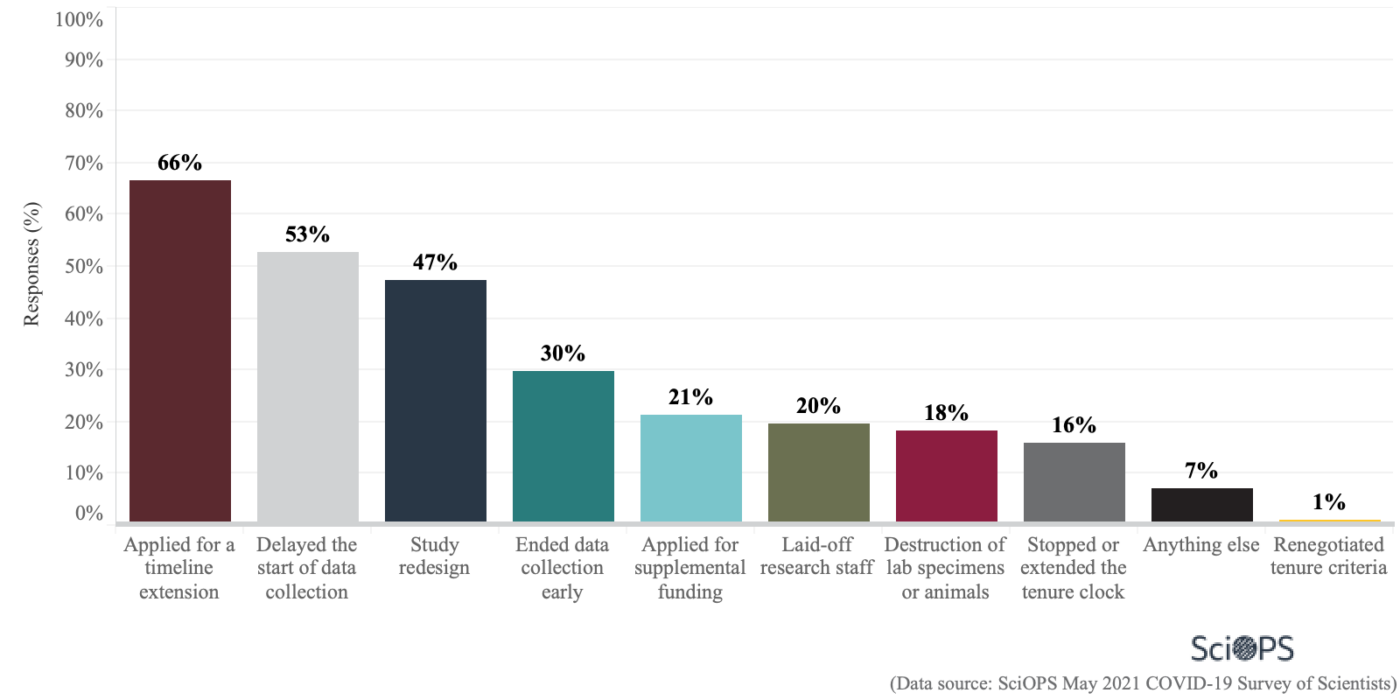
Finding
Of those experiencing grant financial issues (N=89), about 66% applied for a timeline extension and slightly more than half delayed the start of the data collection (53%). Approximately 47% had to redesign their study due to financial problems with grant funding.
Question
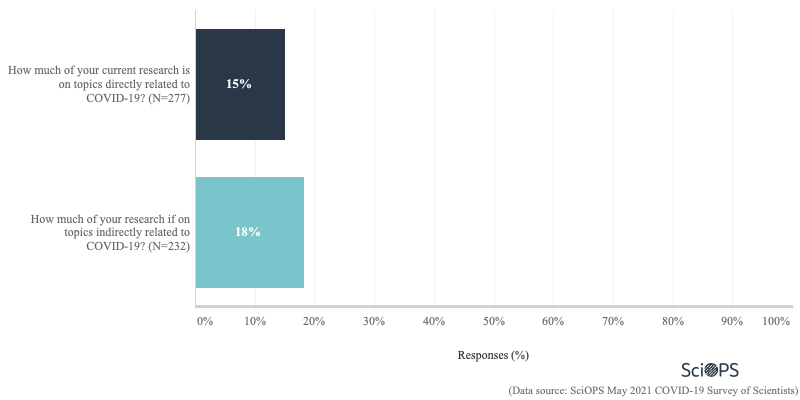
Finding
Most of the respondents to this survey (85%) do not conduct research directly related to COVID-19. Approximately 15% of scientists report that at least some of their current research is directly related to COVID-19 and about 18% of scientists report that at least some of their research is indirectly related to COVID-19.
Survey Description
This national survey of scientists and engineers was conducted by Center for Science, Technology and Environmental Policy Studies at Arizona State University. The population for the survey represents a random sample of PhD-level faculty in four fields of science. Three fields, biology, biochemistry, and civil and environmental engineering, were collected from 61 randomly selected Carnegie-designated Research Extensive and Intensive (R1) universities in the United States (US). The final sample included contact information for 1,914 scientists. A total of 291 usable responses were obtained, representing an AAPOR response rate (RR4) of 15.7%.
Sample Weighting and Precision: the completed sample was weighted by the inverse of selection probabilities and post-stratified by gender and academic field to represent the population as closely as possible. A conservative measure of sampling error for questions answered by the full sample is plus or minus 5 percentage points. The survey was approved by Institutional Review Boards at Arizona State University and at the University of Illinois at Chicago.
